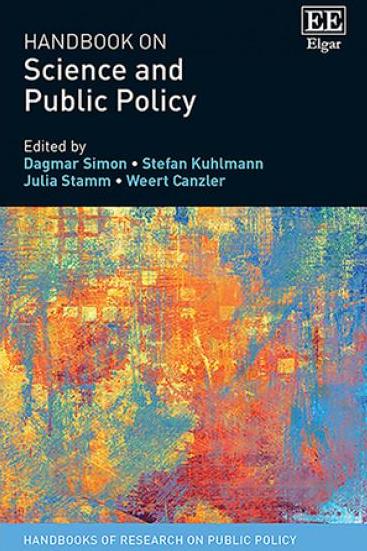‘Without any doubt, the relation between scientific practices and public policies has changed considerably over the past quarter of a century. Internationalization has increased, in the form of both co-operation and competition. Innovation has become a policy keyword for assessing scientific outcome, while scholars themselves have observed changes in knowledge production. New indicators for assessing scientific quality and impact have proliferated, and they are increasingly used as policy tools. Rich in both substance and diversity, this volume makes a big step towards providing a much-needed comprehensive assessment of a wide range of interrelated changes in the relation between science and public policy.’
– Peter Wagner, Universitat de Barcelona, Spain
‘This Handbook offers a comprehensive analysis of the complex and fluid relationships between science, society and science policy. A combination of theoretical, empirical, comparative and transnational contributions by a multidisciplinary group of acknowledged scholars offers novel perspectives on forms of collaborative knowledge production and ways of renegotiating the contract between science, society and public policy. At a time of rising anti-science rhetoric, this volume offers a valuable counterweight, which should be widely read by academics and policy practitioners alike.'
– Sigrid Quack, University Duisburg-Essen, Germany
‘This Handbook offers an interesting look at the evolving state-of-the-art research on science, public policy and society. A number of internationally leading scholars provide valuable empirical observations together with inspiring theoretical considerations regarding changes in societal, normative and epistemic foundations, in the configuration of actors, framings and governance arrangements, as well as an outlook on research challenges and opportunities. This is a highly recommended read for academics as well as for reflective practitioners.’
– Daniel Barben, University of Klagenfurt, Austria





